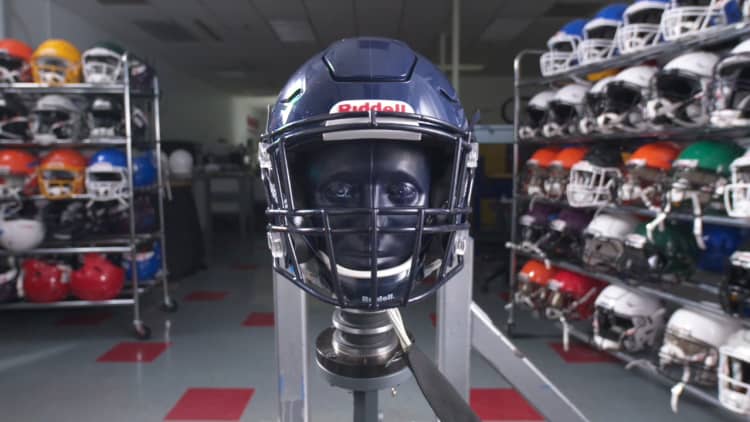
At the Super Bowl on Sunday, 20 players will hit the field wearing Riddell Precision-Fit helmets. What's special about this gear is that they fit the contours of the athlete's head — down to the half-millimeter.
Riddell, which has been making helmets and other protective sports gear since 1929, unveiled the technology behind its Precision Fit helmets in early 2017. This season, 150 NFL players wore the protective gear.
The company starts by sending a technician to take multiple 3D light scans of a player's head. One scan is done of the player while they wear a tight neoprene hood. Another is performed with the player wearing a helmet at the exact angle they like to wear it during a game.
The scans and helmets work for players, no matter how they choose to wear their hair. For example, Philadelphia Eagles' guard Isaac Seumalo, who has a voluminous mane, and center Jason Kelce (who wears his hair short), both opted for the Precision-Fit helmets. Players who decide to shear or grow out their locks in a major way, however, might need to be re-scanned.
Riddell's designers layer and fuse the 3D scans together to derive a blueprint for each player's helmet, then they send the final design to be manufactured. What's key to the custom-fit is the helmet's liner. Made with a urethane foam, co-developed by Riddell and its manufacturing partner, the liner is sculpted and milled at the factory.
The idea of custom-fit helmets is to provide players with maximum comfort and visibility, while also providing them with protection against impact.
The helmets are only available to elite NCAA and NFL players, costing $1,750 for a first unit and $1,200 each for back-up helmet. Riddell can also re-condition and re-certify the helmets each season.



